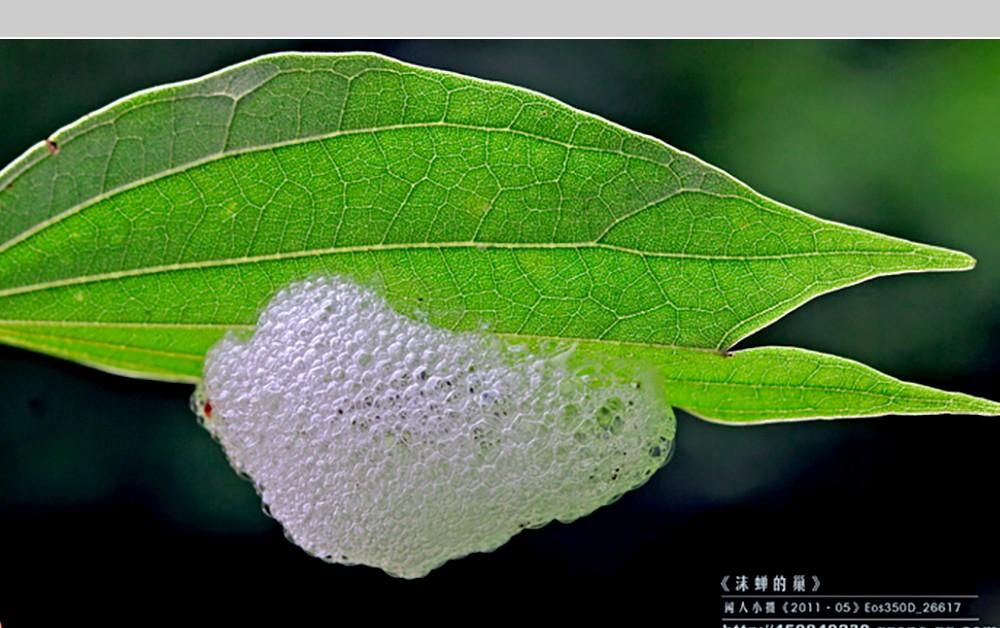
Unique "bubble" nest
Walking on outdoor mountain or field paths in summer and autumn, you can often see a small clump of white foam on the side of the road or scattered on the branches of small shrubs or hanging on the back of the leaves.
Cicadas, homoptera. Overwinter in the crevices of the soil with eggs. In May of the following year, they hatch into nymphs (larvae) that move upwards to branches and blades of grass and secrete a foamy substance that will envelop them.
The white foam is made up of nymphs (larvae) sucking the stem juice of the plant after digestion of the excretion mixed with the mucus secreted by the mucus glands of the terminal parts of the abdomen, creating foam through the peristalsis of the abdomen. This foam is not easily soluble by water, is resistant to drying, and has a strong viscosity. The nymphs hiding in the nest suck the stem fluid, which is comfortable, warm and can avoid the attack of predators to complete the process of feathering adult insects.
A cicada nymph wrapped in a "bubble"
Pull out the foam and you can see only the nymphs (larvae). There is no need to worry that before long, the nymph will "blow out" the foam and will be wrapped up.
Cicada nymphs (larvae)
Most nymphs metamorphose into worms in this foam-formed nest before leaving.
An elephant cicada that has just metamorphosed into an insect. The shell below is a feathered molt
A small red-spotted cicada that has just metamorphosed into an insect
The habitat of the cicada is very extensive, spread all over the world, and there are many species.
Common cicadas with larger shapes and bright colors are: red-striped cicadas, small-spotted red cicadas, purple-breasted cicadas and so on.
Small spotted red cicada, head to wing end length of 13 to 15 mm.
Purple-breasted cicada, body length of about 14 mm
Red-striped cicadas
Cicadas
Orange rice cicada
Cone grass shovel head cicada
Walking outdoors, if you see a white foam-like nest of cicadas, you may wish to stop and watch.
It's also a pleasure to look at the feathering cicada nymphs.